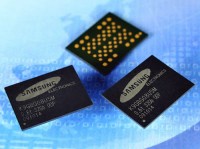 EU fines Samsung, Philips and Infineon for fixing price of chips used in mobile phones and bank cards.
EU fines Samsung, Philips and Infineon for fixing price of chips used in mobile phones and bank cards.
Telegram.com reported that the three companies were fined a total of €138 million ($181 million) by the EU after it was discovered that they had “colluded through a network of bilateral contacts in order to determine their respective responses to customers’ requests to lower prices”; with some of the firms taking “measures to conceal the collusion”.
The “collusion” took place between September 2003 and September 2005, with the companies reported to have “discussed and exchanged sensitive commercial information on pricing, customers, contract negotiations, production capacity or capacity utilisation and their future market conduct”.
As a result, Samsung faces a fine of €35.1 million ($46.1 million), while Philips was fined €20.1 million ($26.4 million) and Infineon received the largest penalty of €82.8 million ($108.9 million). In response to the fines, Infineon reportedly stated in an email that it “rejects the allegations as unfounded” and “is ready to appeal” the decision as it “believes that its procedural rights were violated”.
Philips also reportedly plans to appeal against the decision, with spokesman Steve Klink claiming in an email that the allegations are “unfounded”. Samsung meanwhile is reportedly “reviewing” the decision.
The article states that “the fines follow the collapse of talks to settle the case in 2012”, with another firm, Renesas Technology Corp, avoiding any EU punishment as “it revealed the smart-card chip cartel”.
It is not the first time Samsung and Infineon have face charges for fixing prices, with both companies being “among nine chipmakers that agreed to pay a total of €331 million ($435 million)” in 2010 after they were found to have fixed “prices for dynamic random access memory (DRAM) chips for personal computers and servers”.
